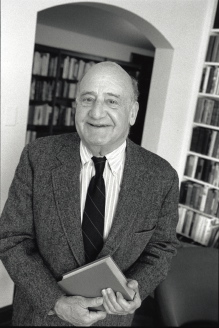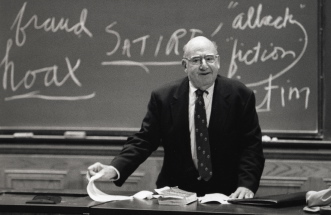Once again, I’m writing about parents and children.
I had a visitor over the holidays, which prompted visits to the aquarium, zoo, and museums — the best places for an old, childless curmudgeon to observe parents and their offspring in action. It wasn’t too bad, if you don’t mind out-of-control children running into you (or over you, if necessary) or little feet kicking the back of your theatre seat for 40 minutes.
Up to a certain age, children are not empathetic creatures. They often do not realize how their behavior and actions affect others. For example, the young son of a friend didn’t know that being pinched is very painful until someone pinched him. The child behind me in the museum theatre may have been annoying from malicious motives, but it’s possible he didn’t know. Kicking chairs is just fun. So is running through crowded areas, screaming, and plowing down strangers.
This is where parents come in, or should.
Many, however, seem to have forgotten that child rearing does come with certain responsibilities beyond basic housing, clothing, and feeding — teaching and disciplining, for example.
I was waiting in line for the women’s room when an adorable little girl slyly tried to sneak past everyone in line, one by one. She did not lack empathy, however; she carefully looked at the face of each woman in line to see her reaction. Her mother, who was immediately behind me, timidly asked her to return to her place. She did, but soon snuck up again; her mother called her back. It was a game of seeing how much she could get away with, both with her mother and with the women in line. This went on for a few minutes. Everyone seemed indulgent and tolerant, perhaps because she was so adorable — which she clearly knew. Finally, her mother said flatly, “Hasn’t Ms. Mary taught you about waiting your turn in line?” “No,” the girl replied (which may or may not be true). “Well,” said the mother, now showing the slightest sign of irritation, “Ms. Mary and I need to have a little talk about that.”
About what? Judging by this and the rest of the conversation, I would guess “Ms. Mary” to be a teacher or in a teaching role. While she could be expected to reinforce good citizenship in the context of a classroom, e.g., “Don’t steal your neighbor’s crayons!” and “Wait your turn in line!” it’s neither her role nor her responsibility to teach her charges the basics of good behavior. That’s what parents are for — to teach their children about right and wrong and the difference between them, how to behave in a social setting, what is acceptable and what is not, and so forth. “Ms. Mary” can reinforce what the kids should already know, but she should be allowed to focus on teaching — ABCs, 123s, art, music, and so forth.
This mother clearly felt that her child’s behavior was not her responsibility. More than that, she undermined “Ms. Mary’s” authority by criticizing her to one of her charges — the charge for whom she herself is responsible.
It’s all very neat. The child isn’t responsible because she didn’t know any better, and the mother isn’t responsible because manners fall into the teacher’s domain. And now “Ms. Mary” will get to face a clever child whose mother has affirmed that “Ms. Mary” is in the wrong.
I don’t envy “Ms. Mary,” who probably faces an entire classroom of similarly empowered children every day. Maybe she doesn’t mind, but it could be possible that this is one of the factors that make good people shy away from the teaching profession.
When I was an education volunteer, I assisted with a family workshop. The first half of the paid program was held at my institution; the second half took place at another institution across the grounds and then across the street. Each volunteer was assigned a group to escort. Unlike the others, my group was a single family — father, mother, and two boys who appeared to be a year or two apart in age. A staff person pulled me aside and said, “We hand picked you to lead this family because they’ve been here before and can be, ummm, difficult, and we decided you would be the best person to handle them.” I didn’t know whether to feel flattered or hoodwinked (or both!).
It was a chilly, rainy day. Once outside, the boys started running, splashing, and screaming. We had 10 minutes to get to the class, but after a few minutes we were only about one-quarter of the way there. When I looked at the parents, they would talk about previous visits but made little if any effort to appeal to their offspring, not even timidly.
Faced with high expectations of my abilities and unthwarted childishness, I resorted to an unplanned secret weapon: my own childishness.
I stopped in my tracks and announced loudly, “I am NOT moving or taking anyone anywhere until you two settle down and walk with the rest of us.” I had the comfort of an umbrella (no one else did), and I’m sure I looked and sounded like I meant it. I did. Mostly.
The little boys recognized a winning ploy when they saw one and, for the most part, walked the rest of the way with us in a docile manner. They even seemed to enjoy the program more, now that they had been persuaded to focus on it.
Meanwhile, I couldn’t tell if the parents were relieved, or upset that I had spoken so to their children. I believe I told the staff what I had done in case there were repercussions, but there weren’t.
My approach was spontaneous; it was the simple result of frustration. Yet it worked on a couple of levels. First, it pulled the boys up short. They were in run-play mode, and I put them into think mode. Then, more importantly, it put the onus of choice in their hands. They could either continue to run and scream, which they could do anywhere at any time, or they could get to participate in a special program and see, touch, and learn about interesting things.
I wasn’t cruel or mean to them, and I didn’t scar their self-esteems for life. I gave them an opportunity to make a choice, and, like most intelligent children, they made a good one.
I’ve no doubt that raising children is daunting and difficult. I was a child once, and I remember many of the tricks very clearly — carefully gauging how much I could get away with, playing my parents against each other, persisting until I got my way. I see kids test their parents; all too often, though, parents fail to realize they are being tested and manipulated, or their desire to be “friends” with their children rather than parents takes precedence over their common sense.
I don’t think these children will grow up to be serial killers. I do believe, however, that we feel the effects of having raised a generation of children who ruled their homes.
My English visitor commented that “random car horn honking seems to be quite popular here.”
It is — with those unable to wait their turn in line.



